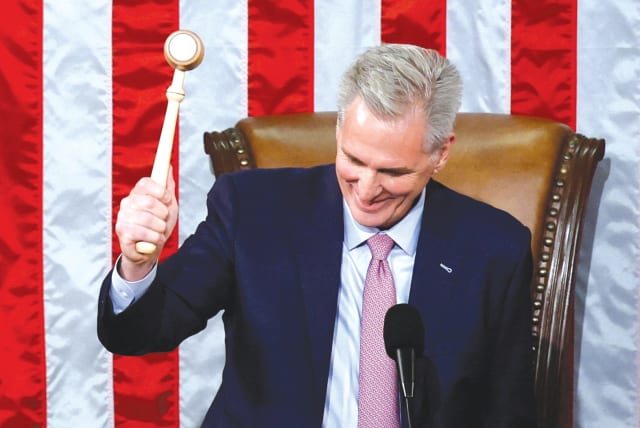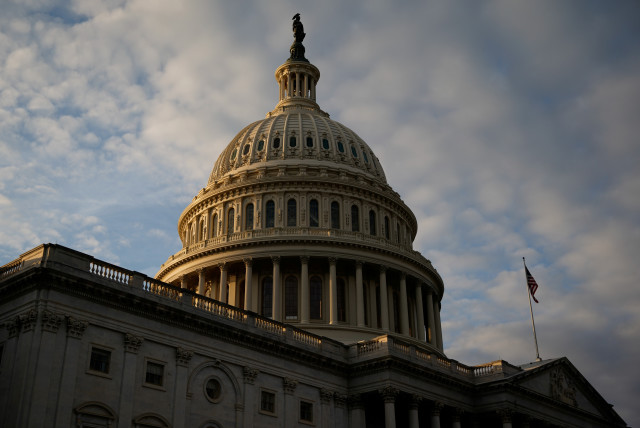Biden, House Republicans seek debt-ceiling deal as US default looms

Two opposing sides of the US government appear to have different ideas of how debt ceiling conversations are going.
President Joe Biden and Republican House of Representatives Speaker Kevin McCarthy entered a critical week for debt-ceiling talks hoping they can find common ground on spending levels and energy regulations to avert a devastating default
Ahead of a planned Tuesday sitdown between Democrat Biden, McCarthy, and the three other top congressional leaders, the two sides did not appear close to an agreement. The White House has not ruled out the annual spending caps that Republicans say must accompany any increase in the nation's $31.4 trillion debt limit.
Republicans, who control the House, for their part, are not insisting on other conditions that the White House has deemed off limits, such as a repeal of the green-energy incentives in Biden's Inflation Reduction Act of 2022.
The two sides could also potentially find common ground on energy regulations.
Biden told reporters on Sunday that he thought both sides wanted to reach a deal. "I think we'll be able to do it," he said.
McCarthy sounded a far more pessimistic tone as he arrived at the Capitol on Monday.
"I still think we're far apart," McCarthy told reporters. "They want to look like they're in a meeting, but they're not. They're not taking anything seriously."
Biden's Tuesday meeting with McCarthy, Democratic Senate Majority Leader Chuck Schumer, top Senate Republican Mitch McConnell, and top House Democrat Hakeem Jeffries, comes one day before he leaves for a meeting of the Group of Seven nations in Japan.
That trip will leave little time for the two sides to reach a deal before the United States runs out of money to pay its bills, which Treasury officials say could come as soon as June 1.
A first-ever US default would plunge the country into recession and inject chaos into global financial markets, economists say, and the standoff has started to worry investors and consumers.
Budget talks
Biden has insisted that Congress must increase the country's borrowing capacity without conditions, but the White House says it is also willing to discuss budget matters with House Republicans.
"Our expectation is that Congress will do what is necessary even as we continue to have parallel discussions on the budget," Lael Brainard, head of the White House's National Economic Council, said on CBS on Sunday.
Republicans face pressure from former President Donald Trump, who said they should allow the country to default unless all their demands are met.
"Better now than later," he wrote on social media. Three times during Trump's presidency, lawmakers raised the debt limit, a move Congress routinely needs to make to cover the costs of spending and tax cuts it has previously approved.
House Republicans passed legislation in April that pairs a $1.5 trillion debt-ceiling hike with $4.8 trillion in spending cuts, largely achieved by cutting annual discretionary spending by 8% next year and capping growth in the years to come.
Democrats say they will not agree to other elements of that legislation, such as a repeal of Biden's student-loan forgiveness effort and an increase in work requirements for some benefit programs.
But they have not ruled out spending caps.
Republican Representative Don Bacon, a leading centrist, told reporters on Friday that an agreement could potentially call for 2% annual increases, rather than the 1% specified by the Republican bill.
The White House and Republicans may agree to ease permitting requirements for pipelines and other energy infrastructure - though that would require time to draft into legislation, said Brian Riedl, a fellow at the conservative Manhattan Institute.
The longer the two sides take to reach a deal, the smaller it is likely to be, he said. "The field of play is going to shrink because you're running out of time on broader policies," he said.
Jerusalem Post Store
`; document.getElementById("linkPremium").innerHTML = cont; var divWithLink = document.getElementById("premium-link"); if (divWithLink !== null && divWithLink !== 'undefined') { divWithLink.style.border = "solid 1px #cb0f3e"; divWithLink.style.textAlign = "center"; divWithLink.style.marginBottom = "15px"; divWithLink.style.marginTop = "15px"; divWithLink.style.width = "100%"; divWithLink.style.backgroundColor = "#122952"; divWithLink.style.color = "#ffffff"; divWithLink.style.lineHeight = "1.5"; } } (function (v, i) { });

